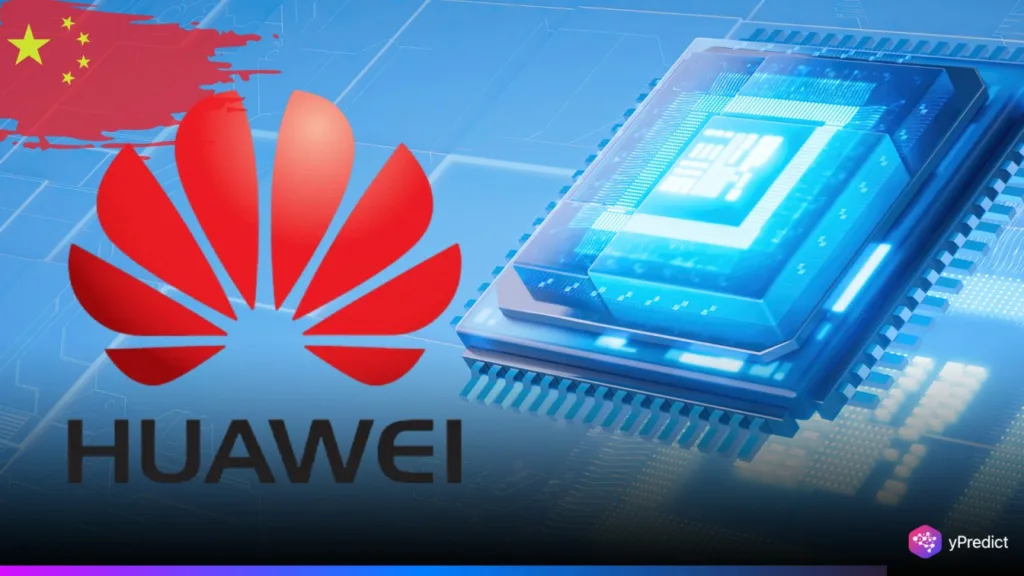
China has severely criticised the latest Huawei chip sanctions imposed by the United States, pledging retaliatory action. The U.S. warned global companies that using these chips may breach export rules, aiming to curb China’s technological advancement. Beijing accused Washington of misusing trade restrictions to gain leverage, further escalating already tense U.S.-China economic and political relations.
China Accuses U.S. of Overreach, Threatens Repercussions
According to Reuters, China has sharply criticised the United States for its latest guidance barring the use of Huawei’s Ascend artificial intelligence chips, accusing Washington of weaponising export controls and undermining fair trade norms. The measure, announced by the US Commerce Department, warns that deploying Huawei’s AI technology globally may violate American export restrictions.
In a press conference on Thursday, Chinese Commerce Ministry spokeswoman He Yongqian condemned the regulation as a disruptive and dangerously unilateral action. He urged the United States to stop what he described as discriminatory tactics targeting China’s tech industry and economic interests unfairly. Yongqian emphasized China’s strong commitment to protecting its enterprises and defending their legitimate interests in global markets and supply chains.
The US announcement is a typical non-market and unilateral bullying practice. This move by the US is not conducive to the long-term mutually beneficial and sustainable cooperation and development of companies on both sides.
Beijing views the restrictions as a direct threat to global economic cooperation and warns of lasting consequences across multiple industries. Officials cautioned that these actions could severely impact sectors in both countries, increasing long-term instability and mistrust in trade relations. This marks the first visible strain in U.S.-China ties since they reached a tentative trade agreement during recent Geneva talks. Despite diplomatic efforts to ease tensions, the ongoing technology conflict remains a persistent source of friction in their bilateral relationship.
Chinese authorities criticized U.S. actions as jurisdictional overreach, accusing Washington of attempting to monopolize key sectors like AI and 5G. Beijing firmly stated it will not remain passive and pledged to respond assertively to protect its strategic technological industries.
Officials confirmed they are exploring countermeasures to defend against what they consider unjust, coercive, and politically motivated foreign trade restrictions. China’s response underscores growing resistance to U.S. pressure, reinforcing its commitment to safeguarding national innovation and industrial competitiveness worldwide.
Huawei Chip Sanctions Extended Through U.S. Export Rules
The U.S. Commerce Department’s Bureau of Industry and Security warned that foreign firms using Huawei’s Ascend AI chips risk violating export laws. The guidelines target chips developed with U.S.-origin technology or intellectual property, placing additional compliance pressure on global tech manufacturers and suppliers.
Issued on May 13, the new U.S. guidance tightens export controls by expanding restrictions to third-party firms using Huawei’s AI chips, even outside the U.S. Though not a legal change, it reflects efforts to close loopholes allowing sanctioned Chinese firms indirect access to advanced technology. This builds on 2019 sanctions placing Huawei on the Entity List, now with a sharper focus on AI chips over broader tech restrictions.
Huawei’s Ascend 910B, 910C, and 910D chips, which compete with Nvidia in China, are believed to use US-origin technology. This puts any company that uses or distributes them at risk of breaking US export rules, regardless of location. The Huawei chip sanctions reflect broader U.S. efforts to curb China’s access to advanced AI and semiconductor capabilities.
Conclusion
The US-China tech rivalry has grown as both countries prioritise AI and sophisticated semiconductors on their national security agendas. In response to fresh US restrictions on Huawei, Beijing has hinted at potential responses, though the specifics are unclear.
As global companies adapt, the Huawei chip sanctions continue to cast a shadow over international tech policy and supply chain decisions. These developments show the fragility of global IT alliances and the growing impact of geopolitics on business strategy. Companies globally are today operating in a turbulent environment in which legislative actions can quickly affect operational and market dynamics.







